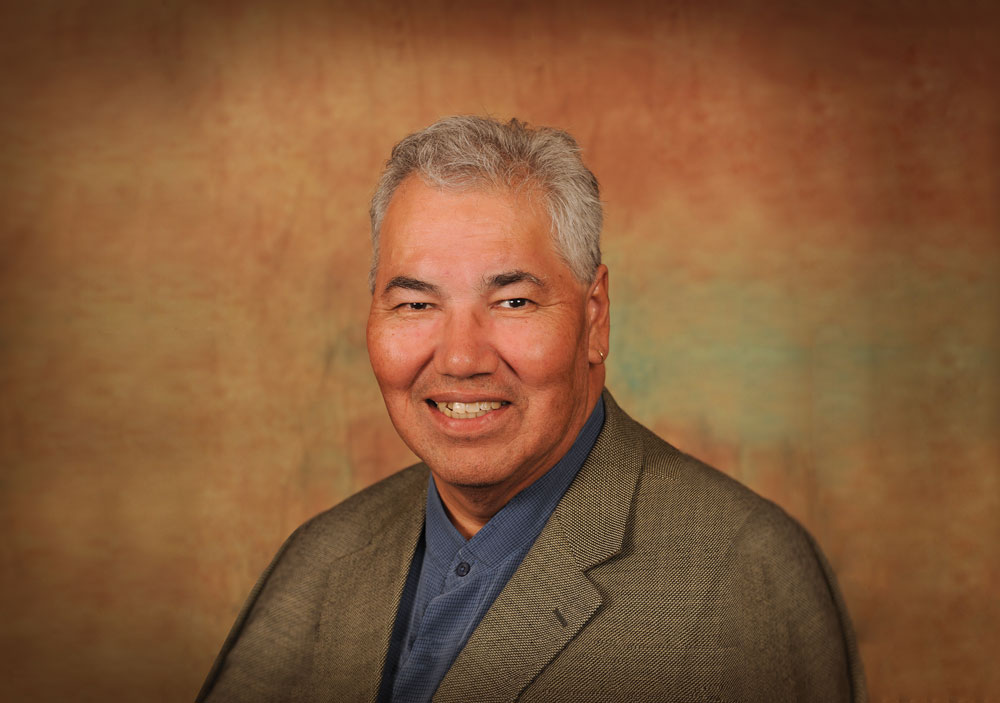
The Honourable Justice Murray Sinclair will deliver the 2014 Knight Lecture on Thursday, October 30
If you thought the Truth was hard, Reconciliation will be harder
Knight Lecture October 30th
“When the TRC process was initiated, some knew that the process would be difficult, but worth it, so that the healing and reconciliation could begin. The saying goes, ‘The Truth will set you free,’ but what if it just makes you angry? Does Truth sometimes stand in the way of Reconciliation?” says the Honourable Justice Murray Sinclair.
The title of this year’s Knight Lecture, If you thought the Truth was hard, Reconciliation will be harder, captures the challenges that lie ahead with building new relationships between Indigenous and non-Indigenous peoples within this country. As the title suggests, the talk — to be delivered by Justice Sinclair, Chair of the Truth and Reconciliation Commission — shows Canada’s struggles as a nation coming to terms with misinformed policies that lead to a loss of culture for generations of Indigenous peoples. The pain this population endured, reliving memories of residential schools must now be carefully documented to make sure the wrongs of the past are never repeated again. This is part of the Truth and Reconciliation Commission’s mandate, as well as to help re-educate our nation as to the importance of Indigenous peoples, their cultures, and their heritage.
The University of Manitoba has been chosen to be the home of the National Research Centre for Truth and Reconciliation. As such, it will play a key role in the preservation of all statements, documents and other materials collected during the Commission’s five-year mandate. The centre supports the TRC’s aim to inform all Canadians about what happened in the 150-year history of the Residential School System, and to guide and inspire a process of reconciliation and renewed relationships based on mutual understanding and respect.
“Reconciliation is about forging and maintaining respectful relationships. There are no shortcuts,” says Justice Sinclair.
The highlight of the Robert and Elizabeth Knight Distinguished Visitors Program culminates with Justice Sinclair’s free public lecture on Thursday, October 30, 7:30 pm in the Engineering and Information Technology Complex (EITC), Atrium at the Fort Garry Campus.
A symposium, The Archive and Reconciliation: Re-Membering the Residential School Experience, in honour of Justice Sinclair will follow on Saturday, November 1 from 8:30 am to 4:30 pm in Theatre 100, St. Paul’s College, also at the Fort Garry Campus.
More information and registration details can be found at umanitoba.ca/knightlecture
The Honourable Justice Murray Sinclair was born and raised in the Selkirk area north of Winnipeg. He graduated from his high school as class valedictorian and athlete of the year in 1968. After serving as Special Assistant to the Attorney General of Manitoba, Justice Sinclair attended the Universities of Winnipeg and Manitoba and, in 1979 became an alumnus of the University of Manitoba, graduating from the Faculty of Law. Only eight years after starting his legal practice, Justice Sinclair was appointed Associate Chief Judge of the Provincial Court of Manitoba in March of 1988, then to the Court of Queen’s Bench of Manitoba in January 2001. He was Manitoba’s first Aboriginal Judge. In 2002, Justice Sinclair was also named a University of Manitoba Honorary Degree Recipient.
The purpose of the Robert and Elizabeth Knight Distinguished Visitors Program is to enhance the quality of higher education at the University of Manitoba and to enrich its academic life. The program invites scholars in the fields of commerce, finance, economics, political studies, history and literature; leaders in the areas of industry and government; as well as outstanding achievers from other disciplines who have made distinguished contributions to the advancement of knowledge or to cultural, social, and economic development.






